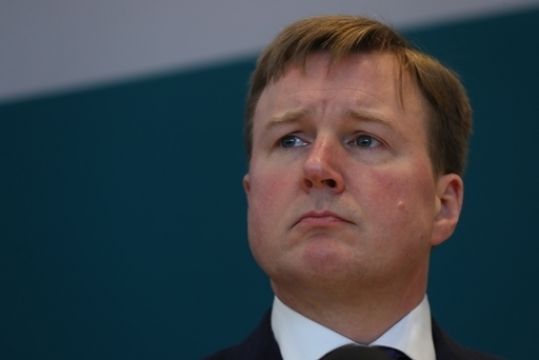The new Covid-19 variant is now in Ireland, according to the National Public Health Emergency Team (Nphet).
Meanwhile, a further 938 new cases of Covid-19 and 13 additional deaths have been confirmed in the Republic of Ireland.
300 of the new case are in Dublin, 110 in Cork, 72 in Limerick, 68 in Donegal and 41 in Kildare.
The 14-day incidence rate is now 153 cases per 100,000 people — it was 88 this day last week.
Deputy chief medical officer Dr Ronan Glynn says the situation is now at its most serious since last March.
Dr Glynn said: “The epidemiological situation reviewed today is the most serious it has been since last March. People should act at all times as if they or those they come into contact with are infectious. The disease has spread across all parts of the country and all age groups, we must act now to protect each other.
“It is inevitable that people will get sick and die as a result of this escalation, but it is not too late for all of us to do all we can to minimise that impact and to protect as many people as possible.”
Dr Cillian De Gascun, medical virologist and director of the National Virus Reference Laboratory, confirmed that the new strain of Covid-19 first detected in Britain has now been detected in Ireland.
“Preliminary data would suggest, based on a selection of samples analysed from the weekend, that the novel variant from the UK is present in Ireland. However, given the timeline of the samples analysed, it would seem that the novel variant is not solely responsible for the recent increase in case numbers seen in Ireland.”
Revise Christmas plans
A rapid increase in Covid-19 cases in London and the south east of England are linked to the new variant of Covid-19.
Public health doctors have said it is unlikely that the new strain will have an impact on the efficacy of Covid vaccines, while tests will be conducted to confirm this.
Dr Holohan said Nphet don't believe the new variant is driving the recent surge in cases.
“We don't think that's been an important part in transmission in this country.
“We've seen a significant amount of social engagement that can explain this extent of really worrying numbers and certainly put us in a situation whereby the types of restrictions we thought a few short days ago, let alone weeks ago, that might be possible for us to undertake over the Christmas period no longer can be contemplated safely.
“So the advice we're giving people is to revise their plans.”







